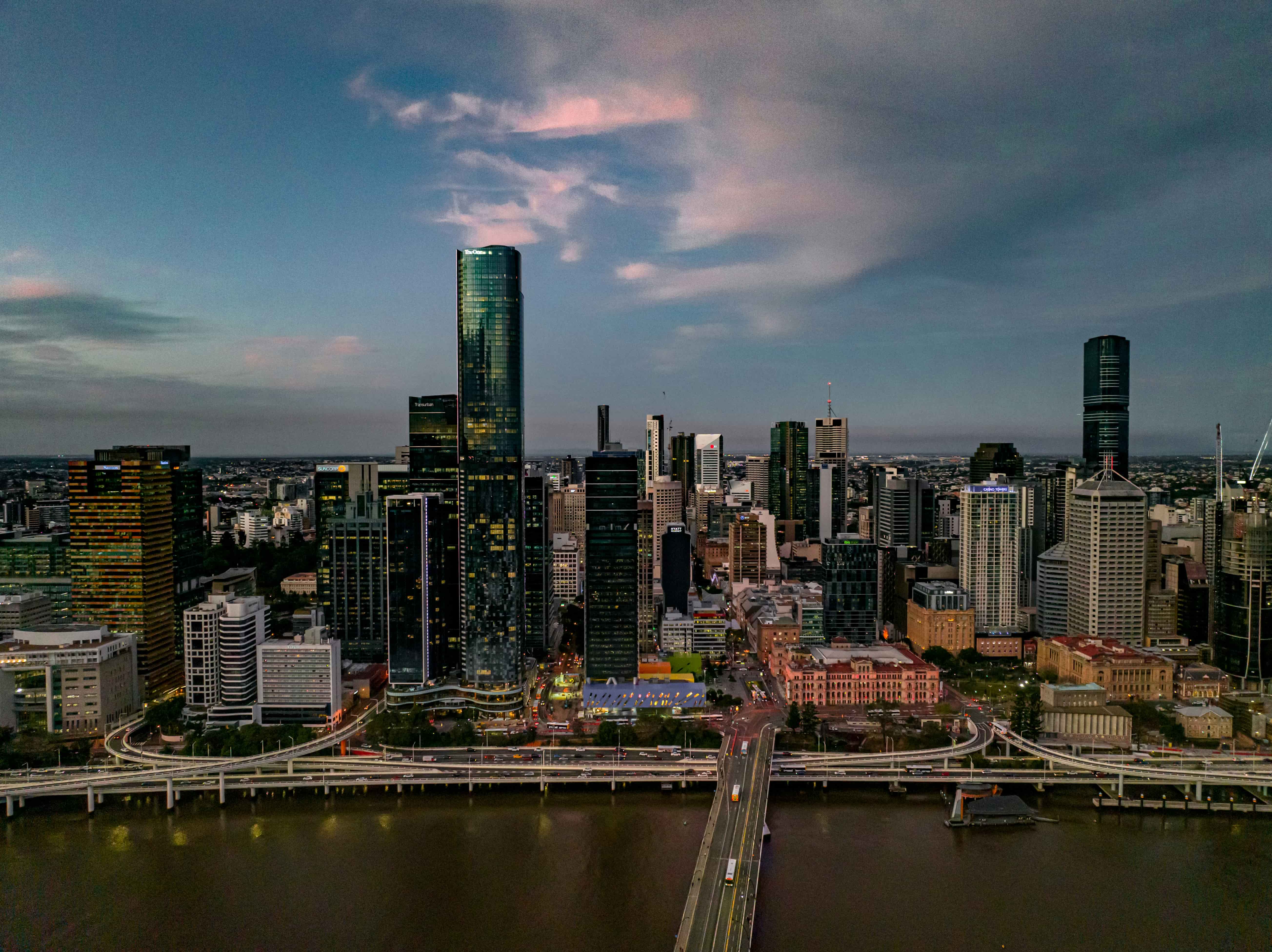
Cost of Living in Brisbane
2025-04-01
Brisbane, the capital of Queensland, offers expats a high quality of life, with a subtropical climate and a strong job market in sectors like healthcare, construction, and IT. While the cost of living is lower than in Sydney or Melbourne, housing and alcohol are notably expensive. The city boasts excellent public services, healthcare, and education, making it a desirable destination for international professionals seeking a balanced, family-friendly lifestyle.
Introduction to Brisbane
Brisbane, the capital of Queensland, is located on Australia's east coast, nestled along the Brisbane River. This subtropical city enjoys warm weather year-round, with hot, humid summers and mild, dry winters. Brisbane is known for its laid-back lifestyle, friendly locals, and proximity to natural attractions like the Gold Coast and Sunshine Coast.
Economy and Employment
Brisbane’s economy is diverse, driven by sectors like mining, construction, tourism, and healthcare. As the gateway to Queensland's vast resources, major employers include BHP, Rio Tinto, and numerous healthcare providers. While the economy is robust, it faces challenges like reliance on resource exports and a need for innovation in green energy. Job opportunities for expats are strongest in engineering, construction, and IT.
Immigration Requirements
For non-Australian citizens, obtaining a work or residence permit requires a job offer from an Australian employer or a skilled visa. Australia’s skilled migration program assesses qualifications, work experience, and English proficiency. While the process can be thorough, it is manageable with the right documentation.
Job Market and Opportunities
The job market in Brisbane is relatively stable, with strong demand for skilled workers in healthcare, construction, and information technology. Salary levels are competitive, but vary by industry. For instance, average salaries for software engineers range between AUD 90,000 to AUD 130,000 per year. Brisbane’s work culture values a healthy work-life balance, and career progression is often based on skill and initiative.
Cost of Living
Brisbane offers a lower cost of living than Sydney or Melbourne but is still expensive compared to many global cities. Here's how some costs stack up:
- Alcohol & Tobacco: High due to excise taxes; a bottle of wine costs around AUD 20.
- Clothing: Prices are mid-range; a pair of jeans might cost AUD 90.
- Communication: Monthly internet plans cost AUD 70 on average.
- Education: Private schooling fees range between AUD 15,000 to AUD 30,000 annually.
- Furniture & Appliances: Moderately priced; basic furnishings for a one-bedroom apartment can be AUD 3,000.
- Groceries: Expect to spend AUD 150–200 weekly for a small household.
- Healthcare: High quality, but private health insurance is recommended; plans cost about AUD 200 monthly.
- Housing: Rent for a two-bedroom apartment in the city center averages AUD 2,300 per month.
- Personal Care: Mid-range; basic personal care items are not overly expensive.
- Recreation & Culture: Fairly priced, with gym memberships around AUD 70 per month.
- Restaurants: Dining out can be expensive, with a meal at a mid-range restaurant costing AUD 30–40.
- Transport: Public transport is well-developed; monthly passes cost about AUD 150.
Housing and alcohol/tobacco are notably expensive, while communication services are comparatively affordable.
Quality of Life
Brisbane ranks highly for quality of life. It offers a clean, safe environment, strong public infrastructure, and access to healthcare and education. The city balances urban living with green spaces, beaches, and cultural events.
Pros and Cons
- Pros include Brisbane's warm climate, relative affordability compared to other Australian cities, and relaxed lifestyle.
- The cons are its high housing costs, especially in central areas, and the occasional extreme weather like flooding.
Culture and Community
Brisbane is multicultural, with English as the dominant language. The population includes many migrants, creating a welcoming environment for newcomers. Social norms emphasize politeness and a relaxed attitude. Australia has no official religion, though Christianity is the most common affiliation.
Healthcare
Australia has a public healthcare system called Medicare, which provides subsidized medical care. Expats may need private insurance for additional coverage, particularly for specialists. Healthcare infrastructure in Brisbane is excellent, with several hospitals and clinics offering advanced treatments.
Safety and Security
Brisbane is a safe city with low crime rates. Political stability and rule of law are strong. Emergency services are reliable, and the city is well-prepared for natural disasters like floods, though these remain a concern in certain areas.
Residential Areas
Popular residential areas for expats include New Farm, Paddington, and Kangaroo Point, known for their proximity to the city center, Lively communities, and green spaces.
Education
Brisbane has a variety of international schools offering curriculums like the International Baccalaureate and British GCSE. Enrollment in these schools can be competitive, with annual fees ranging from AUD 15,000 to AUD 30,000.
Social Scene and Recreation
Brisbane offers a wide range of recreational activities, from outdoor sports like cycling and hiking to arts and culture. The city is home to numerous festivals, sporting events, and community groups. Its café culture and dining scene are lively, with many venues offering outdoor seating year-round.
Transportation
Brisbane has a well-connected public transport system including buses, trains, and ferries. While public transport is reliable, traffic congestion can be an issue, particularly during peak hours. Brisbane International Airport provides easy access to other Australian cities and international destinations.
What Makes Brisbane Unique
Brisbane stands out for its riverfront lifestyle, with a combination of urban sophistication and easy access to nature. The city also has a growing reputation for innovation, particularly in tech and green energy industries.
Overall Cost of Living
Brisbane offers a lower cost of living than Sydney or Melbourne but is still expensive compared to other global cities. While housing and alcohol are costly, groceries and transport are more affordable.
Use Xpatulator’s Cost of Living Calculators and Tools for informed decision-making about the cost of living in Brisbane, Queensland, Australia, and the salary, allowance, or assignment package required to maintain your current standard of living.